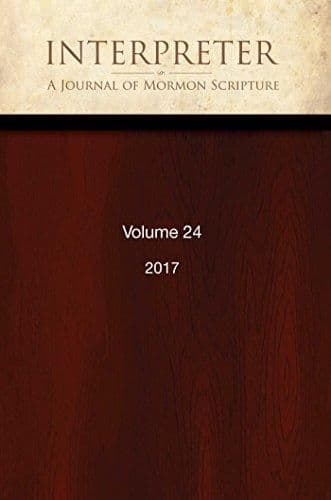Journal
“The Messenger of Salvation”: The Messenger-Message Christology of D&C 93:8 and Its Implications for Latter-day Saint Missionary Work and Temple Worship

Title
“The Messenger of Salvation”: The Messenger-Message Christology of D&C 93:8 and Its Implications for Latter-day Saint Missionary Work and Temple Worship
Publication Type
Journal Article
Year of Publication
2022
Authors
Bowen, Matthew L. (Primary)
Journal
Interpreter: A Journal of Latter-day Saint Faith and Scholarship
Pagination
1-28
Volume
51
Abstract
Several of the Prophet Joseph Smith’s earliest revelations, beginning with Moroni’s appearance in 1823, quote the prophecy of Malachi 3:1 with the Lord “suddenly com[ing] to his temple” as “messenger of the covenant.” Malachi 3:1 and its quoted iterations in 3 Nephi 24:1; Doctrine and Covenants 36:8; 42:36; 133:2 not only impressed upon Joseph and early Church members the urgency of building a temple to which the Lord could come, but also presented him as the messenger of the Father’s restored covenant. Malachi’s prophecy concords with the restored portion of the “fulness of the record of John” and its “messenger” Christology in D&C 93:8 in which Jesus Christ is both “the messenger of salvation” (the “Word”) and the Message (also “the Word”). The ontological kinship of God the Father with Jesus, angels (literally messengers), and humankind in Joseph’s early revelations lays the groundwork for the doctrine of humankind’s coeternality with God (D&C 93:29), and the notion that through “worship” one can “come unto the Father in [Jesus’s] name, and in due time receive of his fulness” (D&C 93:19; cf. D&C 88:29). D&C 88 specifies missionary work and ritual washing of the feet as a means of becoming, through the atonement of Jesus Christ, “clean from the blood of this generation” (D&C 88:75, 85, 138). Such ritual washings continued as a part of the endowment that was revealed to Joseph Smith during the Nauvoo period. Missionary work itself constitutes a form of worship, and temple worship today continues to revolve around missionary work for the living (the endowment) and for the dead (ordinances). The endowment, like the visions in which prophets were given special missionary commissions, situates us ritually in the divine council, teaches us about the great Messenger of salvation, and empowers us to participate in his great mission of saving souls.
For a summary of this article, check out Interpreting Interpreter: https://interpreterfoundation.org/interpreting-interpreter-ich-bin-ein-malachi/
Subject Keywords
Bibliographic Citation
Terms of use
Items in the BMC Archive are made publicly available for non-commercial, private use. Inclusion within the BMC Archive does not imply endorsement. Items do not represent the official views of The Church of Jesus Christ of Latter-day Saints or of Book of Mormon Central.